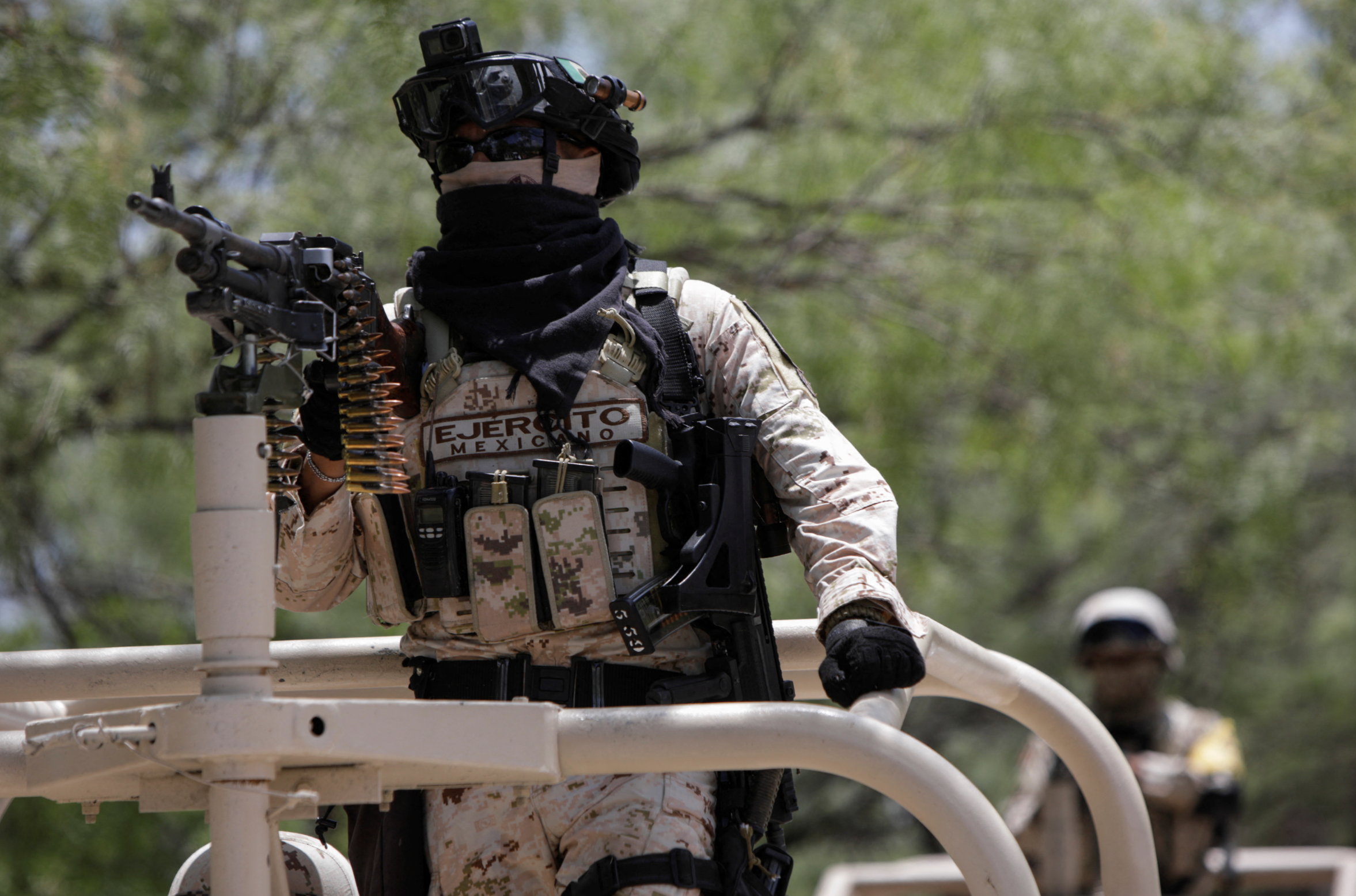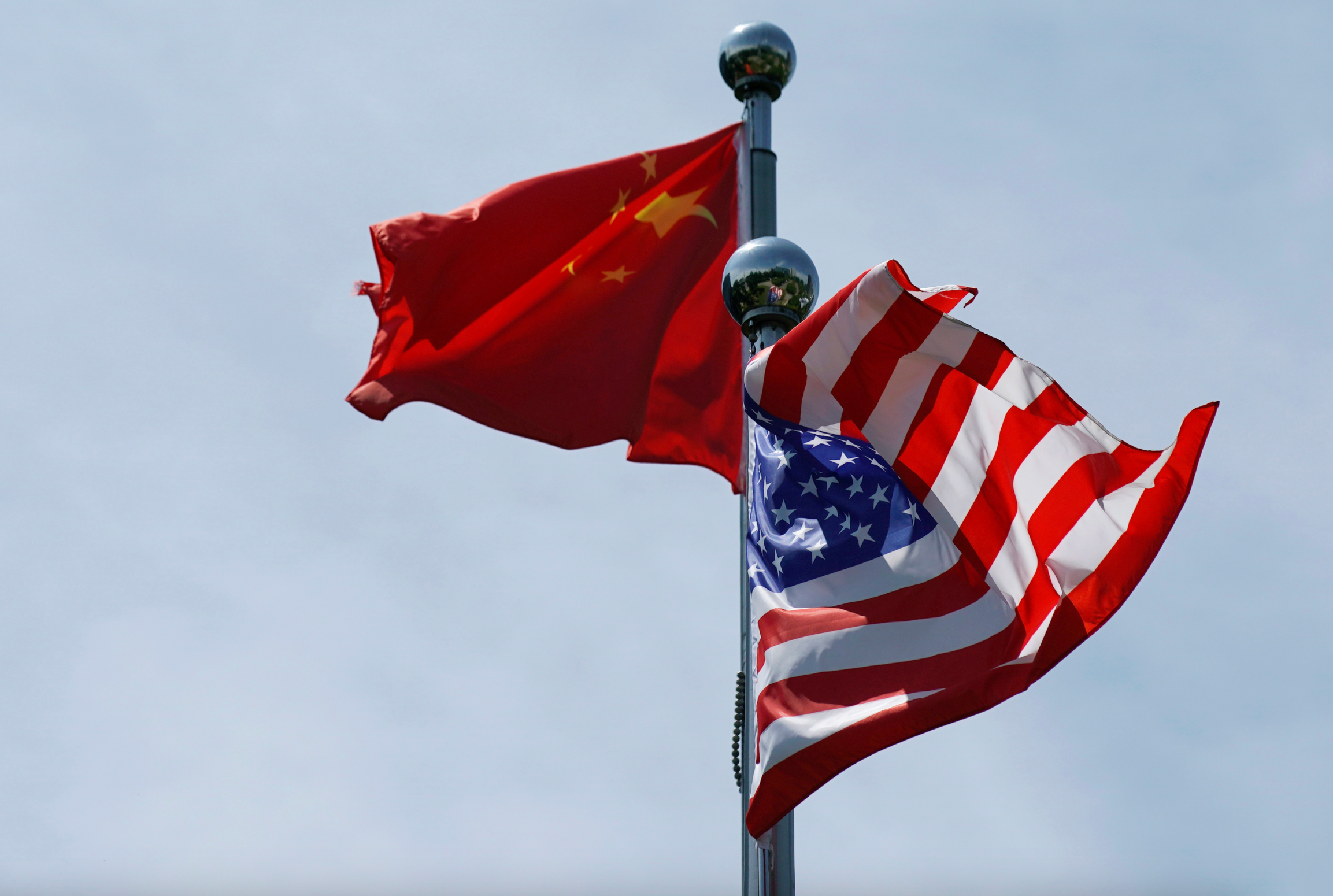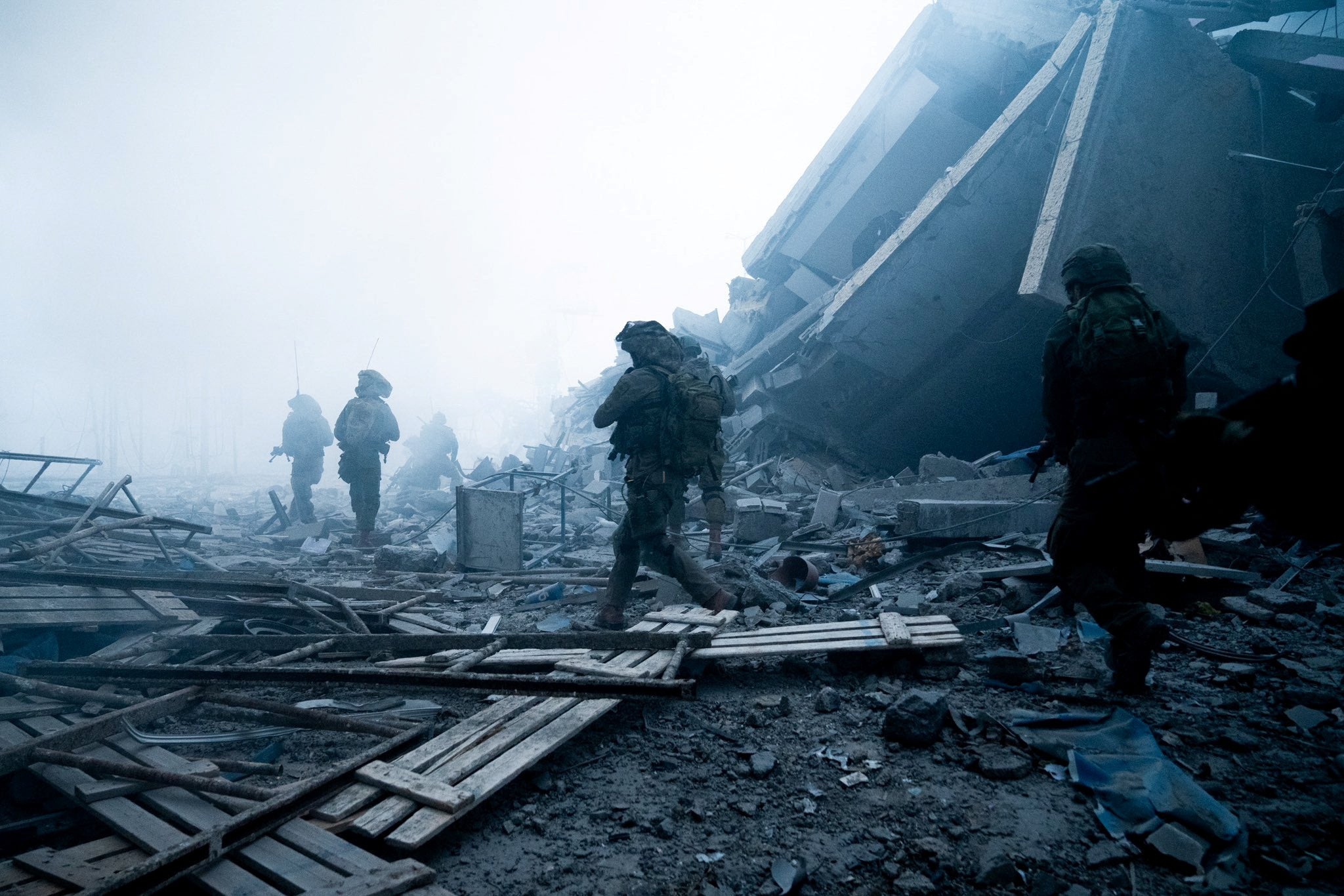
Under US pressure over fentanyl, Mexico wages “imaginary war on drugs” with raids on inactive labs
PHOTO CAPTION: Representational photo — Members of security forces are seen patrolling in Sabinas, Coahuila state, Mexico, August 7, 2022. REUTERS/Luis Cortes
By Drazen Jorgic and Jackie Botts
MEXICO CITY (Reuters) - Mexico's army appears to be raiding only a handful of active drug labs every month, despite U.S. pressure to crack down on fentanyl trafficking, with facilities that were already out of use accounting for 95% of seizures this year, according to defense ministry figures obtained by Reuters.
Reuters revealed in March that Mexico had dramatically revised upward the number of lab raids by including hundreds of inactive labs on its seizures list since President Andres Manuel Lopez Obrador took office in 2018. At the time, the news agency was unable to establish what percentage of the raided labs were operational when they were captured.
New data obtained by Reuters in August from the Mexican Defense Ministry (SEDENA) after a freedom of information request shows that out of the 527 labs raided by Mexico's army in the first seven months of this year, only 24 laboratories, or less than 5%, were "active" labs.
That dataset also revealed a similar pattern in the first four and a half years of Lopez Obrador’s administration, with inactive labs accounting for 89% of 1,658 raids carried out by the army from December 2018 to August this year. The data did not specify how long those labs had been out of use.
Smothering the flow of illicit fentanyl from Mexico has become a top priority for the Biden Administration, which has ratcheted up pressure on Lopez Obrador's government to intensify the hunt for clandestine labs on Mexican soil.
Adding discoveries of inactive labs - which may have been abandoned for years - to Mexico's tally of seizures had the effect of inflating Lopez Obrador's record amid pressure from Washington, says Guillermo Valdes, Mexico's civilian spy chief from 2007 to 2011.
"SEDENA is ripping up its prestige by altering the figures. Who is going to believe them after this?" said Valdes, who has been critical of Lopez Obrador's hands-off security strategy.
Mexico's presidency and SEDENA did not respond to multiple requests for comment for this story.
After meeting U.S President Joe Biden in November to discuss migration and drug trafficking, Lopez Obrador, who previously asserted fentanyl was not a Mexican problem, said his country "is committed to continue helping to prevent the entry of chemicals and fentanyl" into the United States.
Nearly all the labs listed on the August SEDENA dataset were labeled meth facilities, with no fentanyl labs reported, in line with Mexico's statements until recently that no fentanyl was being synthesized on its soil – a claim widely dismissed by Washington and traffickers. Mexico had asserted the synthetic drug was brought over by drug cartels from Asia.
The new August data featuring no fentanyl labs contradicted a video presented by SEDENA in a government press conference in April that said officials had located 37 sites where final-stage precursors were converted into finished fentanyl and pressed into pills. SEDENA did not respond to Reuters questions about why those sites do not appear in the dataset obtained by Reuters.
A SEDENA official who spoke to Reuters on the condition of anonymity said that criminal organizations often leave laboratories inactive between rounds of drug synthesis, which means that a laboratory classified as "inactive" in the August dataset might have been used to produce drugs again had it not been raided by SEDENA.
The U.S. Drug Enforcement Administration (DEA) forwarded Reuters' questions about the data to the State Department, which said it was working with Mexico to "strengthen the effectiveness of our security cooperation" and recognizes Mexico's challenges in seizing and dismantling labs.
A White House spokesperson told Reuters Mexico and the United States were working side-by-side to address fentanyl trafficking and "we are grateful for the commitment President Lopez Obrador has made to confront this challenge through domestic efforts" and with foreign partners.
However, another U.S. government official told Reuters that Mexico does not inform the United States how many SEDENA lab raids were conducted on functioning labs versus raids on deserted facilities.
Vanda Felbab-Brown, a senior fellow at the Brookings Institution, a non-partisan think tank, said the Reuters reporting "just reinforces how the data is being manipulated to placate the United States without really serious effort to move against...fentanyl production and trafficking."
Her view was echoed by Republican Senator Chuck Grassley, co-chairman of the senate's international narcotics control caucus.
The figures suggest Mexico is "fighting an imaginary war on drugs designed to score political points rather than save lives," said Grassley, a conservative Republican.
INCONSISTENT REPORTING
SEDENA's reporting of its lab raids data has been inconsistent in recent years, with frequent modifications in the total numbers of labs raided, according to a Reuters review of over 20 datasets published by SEDENA via Mexico's freedom of information institute (INAI) since early 2022.
The August dataset, which specifies that most raided labs have been inactive, is consistent with internal military documents about inactive labs, first reported on by Reuters in March. Reuters was unable to find any responses to freedom of information requests prior to the August data release in which the military indicated that there were inactive labs among their raids.
One week after Reuters asked SEDENA to comment on the findings of this story, INAI on Dec. 11 released an updated version of what appeared to be largely the same data, but the column indicating active or inactive labs was changed to show all entries marked as "active" – contradicting the August dataset.
The pre-August lab raids presented in the new dataset, which was requested by Reuters on Nov. 15, were otherwise nearly identical to those presented in the August dataset, and the data included 339 additional lab raids from August through October of this year.
SEDENA did not respond to further questions about why all raids have recently been reclassified as being on active labs. Reuters is seeking to clarify the December SEDENA data set with INAI, and has requested an explanation for the discrepancies in the two responses, as well as the apparent change in classification and the criteria used to determine whether a laboratory is active or inactive.
"FOR SHOW"
Discoveries of inactive labs are sometimes linked to collusion between cartels and army figures, according to two current and two former traffickers, who said they were not surprised by reports of so many inactive laboratories being discovered.
Two active traffickers from the northern state of Sinaloa, a fentanyl trafficking hotspot, told Reuters it was common for the cartel to give up drugs or locations of labs to friendly soldiers who leaked information about planned military action against criminal groups.
One of the traffickers, who declined to be identified, said the lab raids were often "for show."
The four traffickers said cartel members build quid-pro-quo relationships with army commanders, bribing the soldiers as well as helping them impress their superiors in return for cooperation over military operations and protecting valuable assets.
Margarito Flores, a former American kingpin who was a close associate of El Chapo before becoming a U.S. government informant in 2008, told Reuters the cartel frequently used to strike deals with military commanders on the ground, including giving up small meth labs on the understanding bigger labs would be left alone.
"The trade offs happened a lot," Flores said, referring to his time with the cartel.
Reuters could not independently verify the traffickers' claims, and they did not cite specific instances or identify the military commanders involved in such deals. SEDENA and other law enforcement agencies did not respond to requests for comment.
On taking office, Lopez Obrador overhauled Mexico's security policy, abandoning the previous "kingpin" strategy that focused on capturing top capos but contributed to violence spiraling nationwide. He favored a less confrontational approach that tried to address the root causes of violence, such as poverty.
(Reporting by Drazen Jorgic and Jackie Botts in Mexico, additional reporting by Jeff Mason and Humeyra Pamuk in Washington; editing by Christian Plumb and Claudia Parsons)









